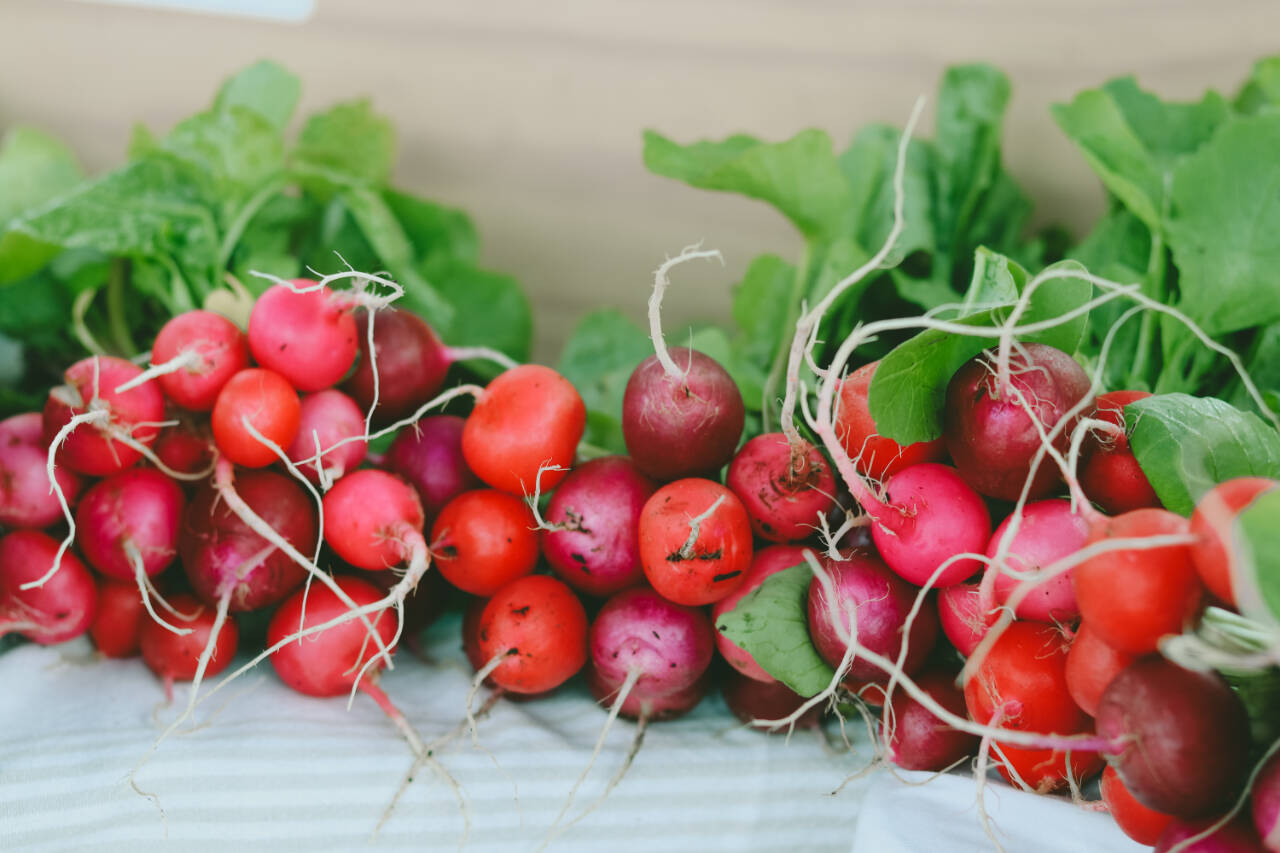Alongside local economy, entrepreneurship and accessibility, Sequim Farmers & Artisans Market highly values ecological responsibility. Behind the familiar rows of busy vendors, smiling shoppers, and tables full of produce and art, farmers’ markets are bustling hubs of sustainable practices.
But how do farmers’ markets promote sustainability and reduce the community’s ecological impact?
Sustainability is embedded into the model of farmers’ markets. By selling outdoors at designated times of the week, the market needs minimum amounts of energy to function, greatly decreasing the organization’s carbon footprint.
For example, on average, food reportedly travels more than 1,000 miles from the point of production to the retail store. And conventional vegetables and fruits may have been stored up to 10 months before hitting grocery store shelves, according to the United States Department of Agriculture.
Storing and transporting produce for long amounts of time and long distances requires large outputs of fossil fuels and energy.
By contrast, the locally grown produce sold at farmers’ markets comes out of the field generally a day before the short drive to the market.
The highly shortened amounts of storage and transport also mean less packaging and plastic waste. Most of the products from farmers and artisans aren’t packaged at all.
Shoppers are encouraged to reduce waste further by bringing a reusable bag to further reduce the market’s impact.
In fact, the first 25 shoppers to present their reusable bags at the Sequim Farmers & Artisans Market Information Booth receive a $3 voucher to spend anywhere at the market. If those 25 shoppers alone bring a reusable bag each week, that’s more than 600 single-use plastic bags saved over the course of the market season.
Market vendors further engage in their own sets of ecologically responsible practices. Not only do many small farmers sell fresh food, but many engage in ecologically sound practices such as planting a diverse amount of crops, rotating crops to keep soil from being nutrient-depleted, and using pesticide-free management practices.
They can also sell produce with purely cosmetic imperfections that would not meet the aesthetic standards of conventional grocery stores, further reducing food waste.
Likewise, many artisans use sustainable practices such as utilizing upcycled or reclaimed materials.
However, today’s economy poses many challenges to farmers and artisans who engage in these environmental-friendly practices. Economies dominated by large, corporate industries mean higher barriers to entry and weakened bargaining positions for small farmers and local artisans.
The market not only offers a platform for small and mid-size vendors free of large overhead but also allows them to sell in an environment where quality and sustainable practices are just as valued as price.
In essence, markets like Sequim Farmers & Artisans Market demonstrate that a vibrant local economy, entrepreneurship, accessibility, and ecological responsibility can harmoniously coexist.
It serves as a testament to the power of community-driven initiatives in promoting sustainability, reducing ecological impact and creating a better future for all.
Bailey Loveless is the market director of the Sequim Farmers & Artisans Market.



